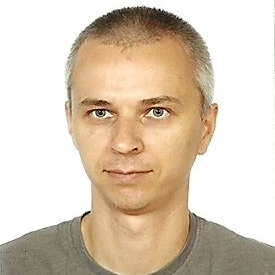Selective Laser Melting Technology
A special issue of Applied Sciences (ISSN 2076-3417). This special issue belongs to the section "Optics and Lasers".
Deadline for manuscript submissions: closed (30 December 2020) | Viewed by 309
Special Issue Editor
Special Issue Information
Dear Colleagues,
Additive manufacturing is currently the most dynamically developing branch of the production industry. New AM technologies are constantly emerging that allow obtaining increasingly better products, but equally, important progress is observed in the evolution of existing technologies, especially by developing new materials and improving the properties of existing ones.
Selective laser melting is one of the most widespread powder-bed-based additive manufacturing technologies in the industry. It is also one of the technologies most often chosen as the subject of scientific research, which is due to the huge innovation potential of SLM—intensive research is carried out on technological parameters and melting process conditions, new materials are being developed, and innovative solutions in the field of process control and manufactured parts diagnostics are tested. This is only a small part of the huge spectrum of currently conducted research related to the selective laser melting process.
This Special Issue is dedicated to the dissemination of discoveries concerning SLM technology as well as related issues, such as powder metallurgy, development of new alloys, and postprocessing of additively manufactured parts.
Scientific contributions are invited from scientists, researchers, engineers, and industry to disseminate recent inventions and developments in the field of selective laser melting. Potential topics include but are not limited to:
- Microstructure and properties of SLM processed materials;
- Process simulation;
- Manufactured part postprocessing;
- Metal matrix composites obtained by SLM;
- High entropy alloys;
- SLM process diagnostics;
- Biomedical application of SLM.
Submissions in the form of review articles, regular research articles, and short communications are welcome.
Dr. Dariusz Grzesiak
Guest Editor
Manuscript Submission Information
Manuscripts should be submitted online at www.mdpi.com by registering and logging in to this website. Once you are registered, click here to go to the submission form. Manuscripts can be submitted until the deadline. All submissions that pass pre-check are peer-reviewed. Accepted papers will be published continuously in the journal (as soon as accepted) and will be listed together on the special issue website. Research articles, review articles as well as short communications are invited. For planned papers, a title and short abstract (about 100 words) can be sent to the Editorial Office for announcement on this website.
Submitted manuscripts should not have been published previously, nor be under consideration for publication elsewhere (except conference proceedings papers). All manuscripts are thoroughly refereed through a single-blind peer-review process. A guide for authors and other relevant information for submission of manuscripts is available on the Instructions for Authors page. Applied Sciences is an international peer-reviewed open access semimonthly journal published by MDPI.
Please visit the Instructions for Authors page before submitting a manuscript. The Article Processing Charge (APC) for publication in this open access journal is 2400 CHF (Swiss Francs). Submitted papers should be well formatted and use good English. Authors may use MDPI's English editing service prior to publication or during author revisions.
Keywords
- SLM
- selective laser melting
- additive manufacturing
- 3D printing
- powder bed fusion
Benefits of Publishing in a Special Issue
- Ease of navigation: Grouping papers by topic helps scholars navigate broad scope journals more efficiently.
- Greater discoverability: Special Issues support the reach and impact of scientific research. Articles in Special Issues are more discoverable and cited more frequently.
- Expansion of research network: Special Issues facilitate connections among authors, fostering scientific collaborations.
- External promotion: Articles in Special Issues are often promoted through the journal's social media, increasing their visibility.
- Reprint: MDPI Books provides the opportunity to republish successful Special Issues in book format, both online and in print.
Further information on MDPI's Special Issue policies can be found here.





